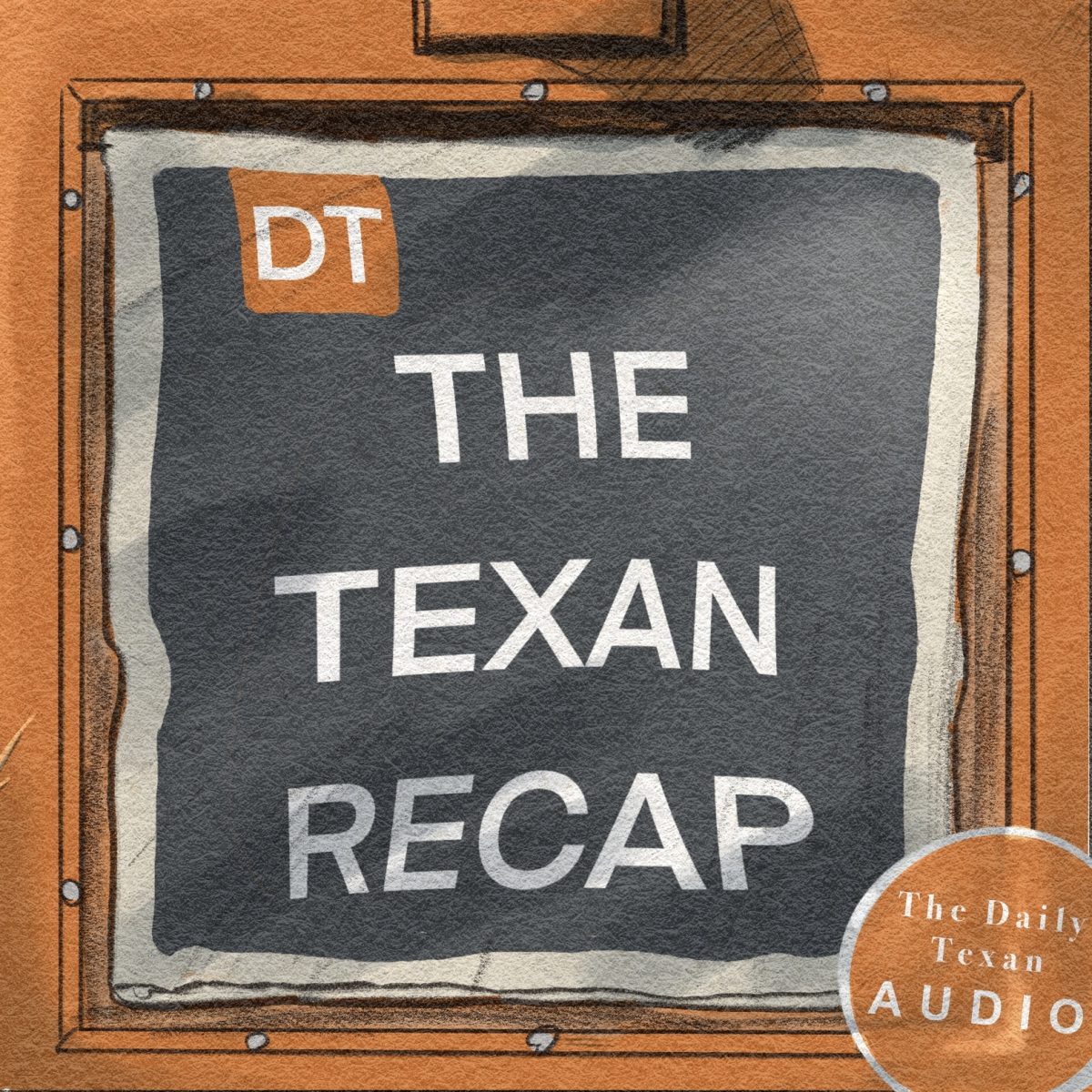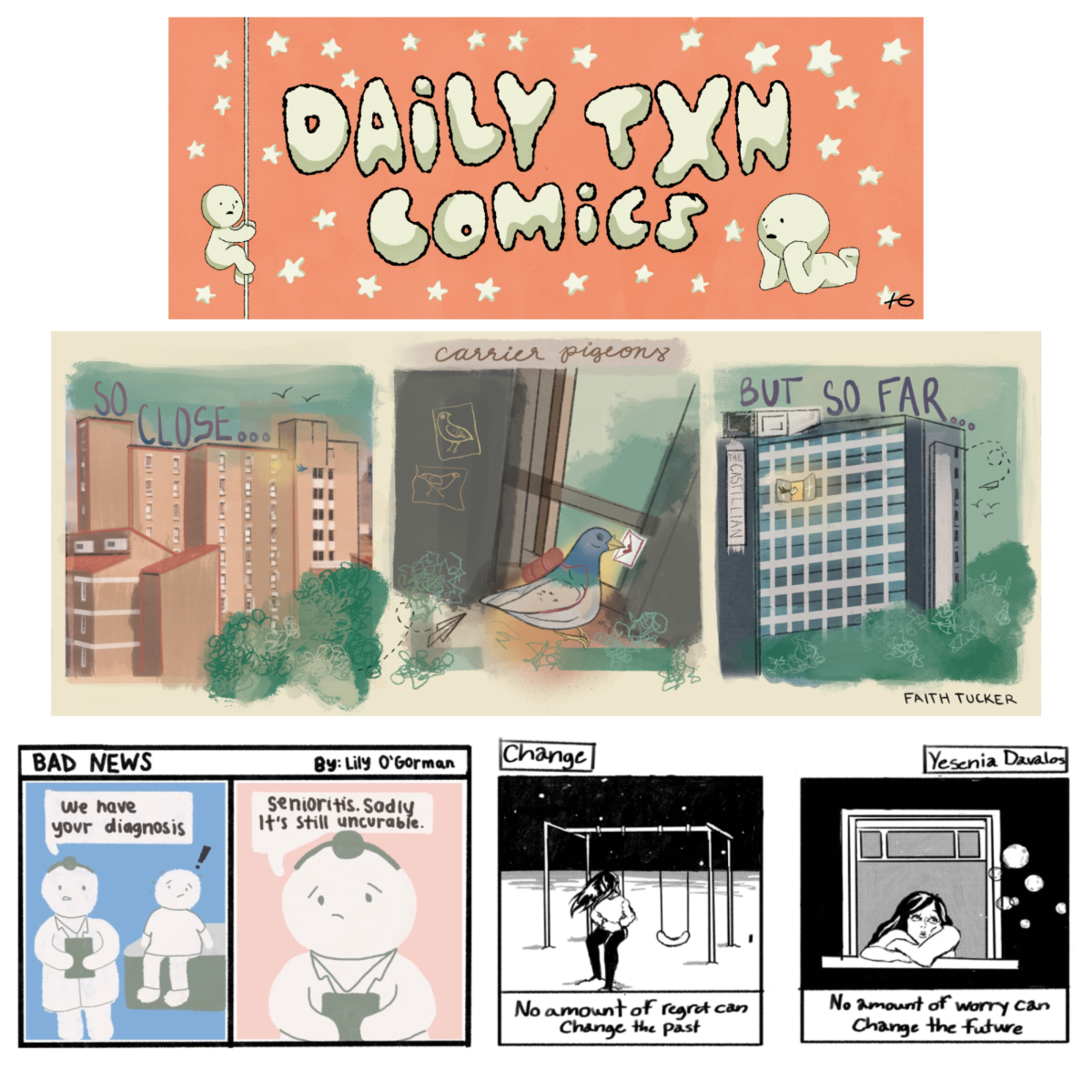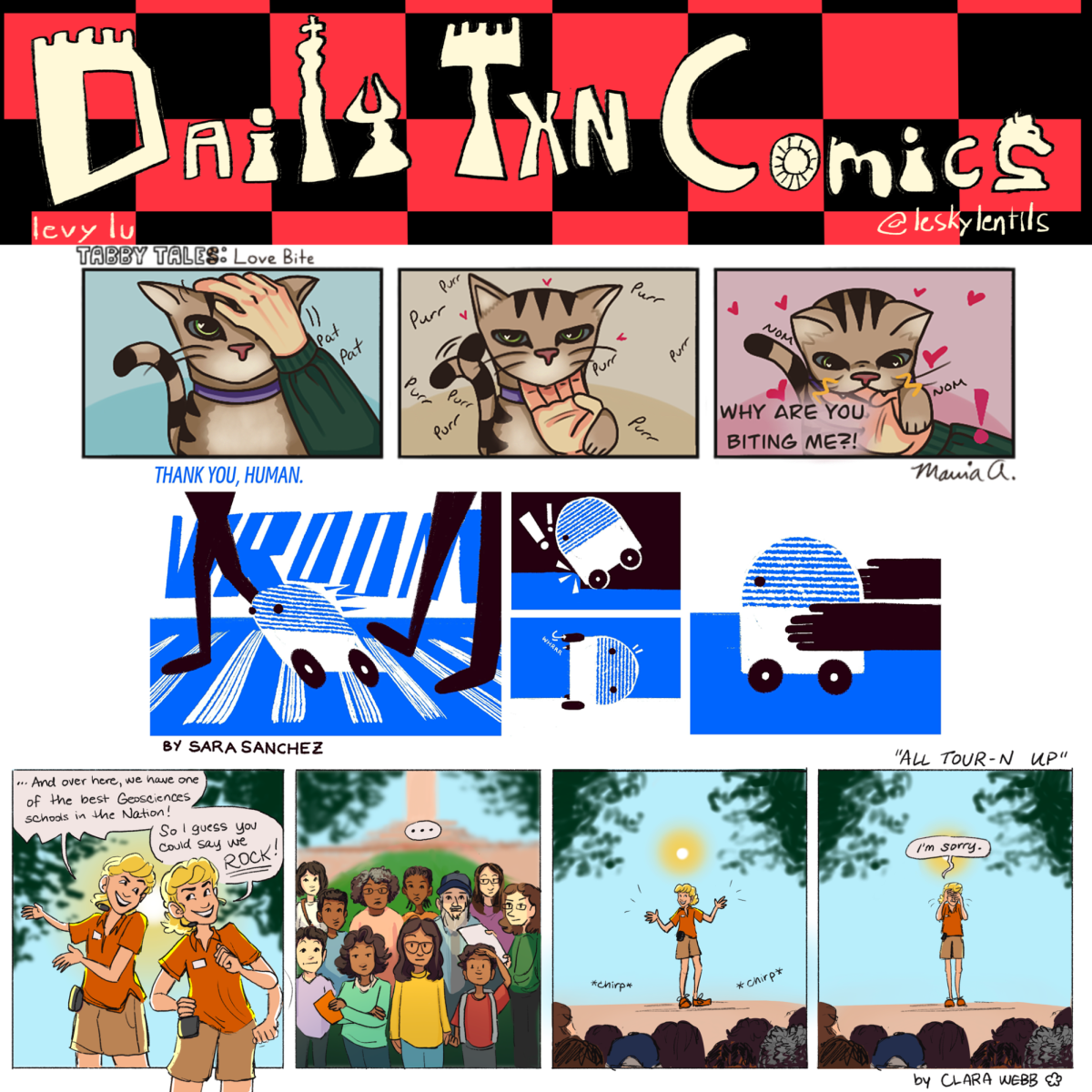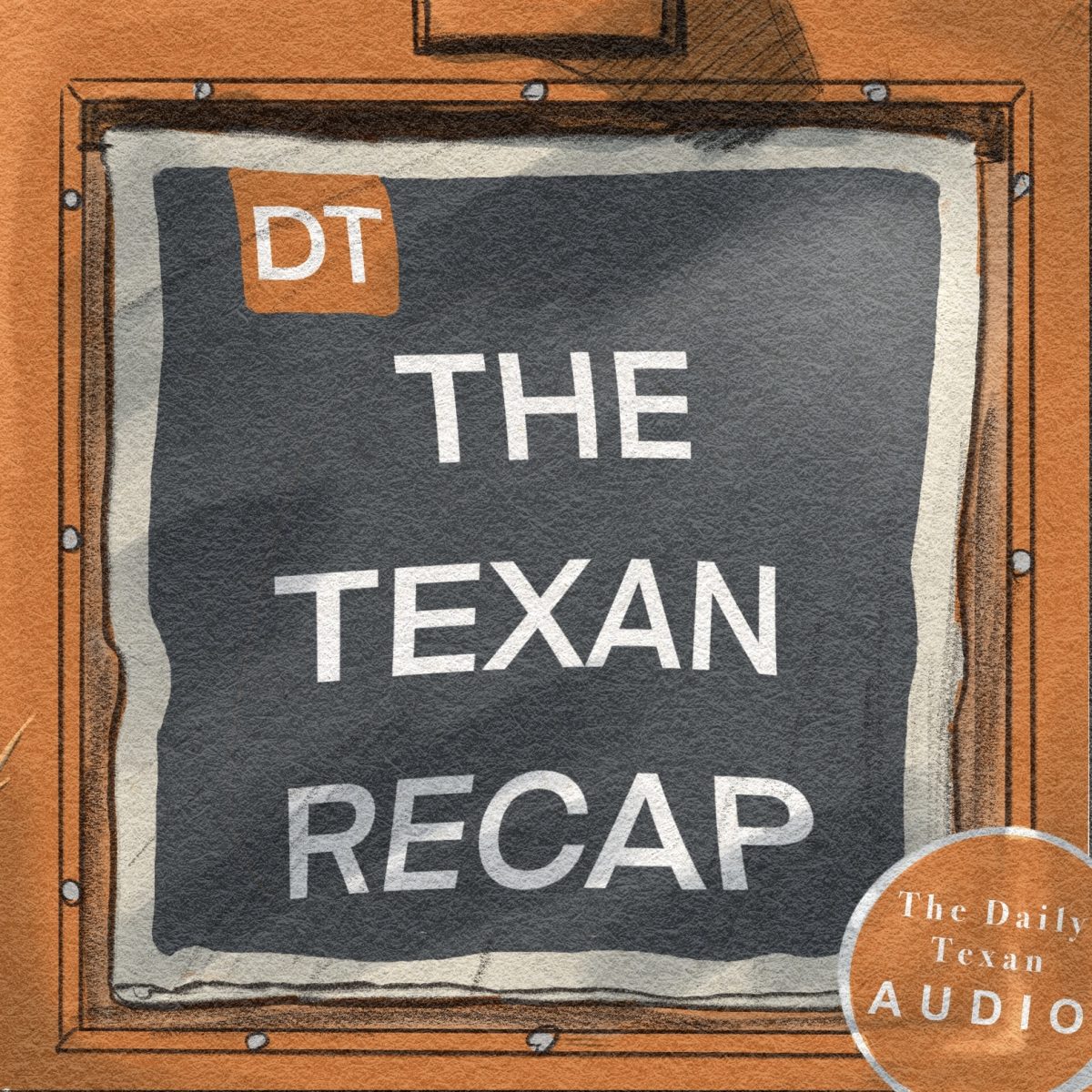Hannah Berns: Welcome to Longhorn Essentials: your guide to all things adulthood and UT. I’m Hannah Berns, and today’s episode we discuss academic well-being.
*Music*
College is a great time for discovering intellectual passions, building social connections, and fostering personal and professional development, and balancing your time and work can make these experiences less overwhelming and more enjoyable. In this episode, the director of the Sanger Learning Center and current UT students share their insights into the key factors that contribute to maintaining academic well-being, and offer practical tools to help you stay on track and thrive during your time at UT. Ashlynn Lavezzari, a senior Sociology major and Philosophy of Law minor and social events chair for the Texas Pre-Law Honor Society, starts.
Ashlynn Lavezzari: We all kind of found that we all keep up a good exercise routine, a good diet routine. We all have balance with friends outside of school and activities outside of school. And so when it’s time to study, we don’t feel so burnt out or drained or tired. It’s that we’ve been putting our effort into other things too in small doses and so everything is in balance.
Berns: Balancing your social, academic, personal, and professional lives is essential to achieving academic success and personal fulfillment, particularly when you’re involved in numerous activities at a large university with abundant opportunities. Joshua Elizondo, a second year Biomedical Engineering major and member of Texas Iron Spikes, says that considering trade offs helps him balance his commitments.
Joshua Elizondo: I feel like it ultimately comes down to yourself, like how disciplined you are when it comes to organizing this stuff. I’ve had this talk with a couple of my friends and stuff like that, but it feels like when it comes to engineering or STEM in general, it’s almost like this sort of trade off, like are you willing to have fun but at the sacrifice of maybe a grade or maybe an assignment that you might be missing?
Berns: Time management is another crucial piece of the balance puzzle.
Lavezzari: I think doing your absolute best to structure your routine to where you don’t have a lot of wiggle loose time. I think even if it’s a little mundane task or if it’s something active or even if it’s with friends, it’s easier to stay busy than to get yourself in a slump, stay in that slump, and then try to pull yourself out of it and have the energy to go study.
Berns: Adyn Garcia, a junior Government major and mock trial co-captain in the Texas Pre-Law Honor Society, breaks down his routine and how he manages his time throughout the week.
Adyn Garcia: For me personally, what I like to do is I have a planner, and at the beginning of the week I have every assignment that I have to get done by the week, and I always try and schedule in a break to eat because I tend to always forget to do that and like at least an hour or two at the end of every night to just relax. I try and have a cut off of around 8 or 9 p. m. to have everything done for the day.
Berns: Adyn says that while sometimes your schedule gets thrown off, that’s life. And it is important to adapt and ensure you give yourself ample time to sleep, unwind, and decompress. Ray Acuña-Luna, Director of the Sanger Learning Center, emphasizes the mental value of setting up a routine and consistently following it.
Ray Acuña-Luna: I would advise students to set up a routine that works for them so that their brain is spending less time trying to figure out what is it that you’re supposed to be doing and stick by it.
Berns: To stick to her routine, Mandira Ganti, a third year Journalism major, social chair for Absolute Texas and Communication Council member at Moody College of Communication, organizes her tasks in Google Calendar. This helps her stay on top of her commitments and prioritize them effectively.
Mandira Ganti: And so you can kind of order what your main priority should be and what you can just do in the background if you’re in a lecture, like assignments you can do in that way. I think that’s really helpful in being able to balance my time.
Berns: Mandira also makes sure to incorporate fun and enjoyment into her academic routine.
Ganti: I think it’s really easy to balance it if you’re able to make stuff fun for yourself. Like if you’re able to study with friends, or just switch up where you’re studying, maybe try a new coffee thing while you’re doing a project you hate. I think it makes it a lot more enjoyable.
*Music*
Berns: Developing effective study habits and techniques can also support your academic well-being, as they help you complete assignments more efficiently, leaving time for other activities and events. Mandira shares some general tips.
Ganti: When I’m studying, I try to do a lot of keeping all my notes in the same spot. And then when I want to memorize them, I use a lot of Quizlet. I’ve tried the Pomodoro method if I need to lock in for a long amount of time. I like that because there’s free timers online. So that helps with studying. A lot of writing down things that I’m missing. I think that helps me remember stuff really well.
Berns: The Pomodoro Method, a time management method that separates work into 25-minute intervals with short breaks in between, divides tasks into manageable parts, and helps you retain information better by giving yourself time to absorb it. Mandira elaborates.
Ganti: I think it’s really important to break down your tasks into smaller doable chunks, and that just takes away the anxiety that just kind of makes you not be able to do anything.
Berns: Ashlynn cites the common phrase,
Lavezzari: It’s a marathon, not a sprint,
Berns: when it comes to completing assignments.
Lavezzari: I like to put things off, but I understood when I signed up for these classes that I have to be diligent all year and I can’t write an eight page paper in one night. That’s not going to work. So I think study habits for those are finding interest. A lot of the times they want you to be creative. And so I think picking an interest, really focusing on it, starting to build research articles. Keep a little folder of it in your computer. Those are all really important ways to work towards that.
Berns: Ashlynn also suggests listening to required readings via audiobooks.
Lavezzari: A couple of my peers, we talked about this, and they came out and said that you can listen to audiobooks of your readings for classes. And I had never thought about that, and I really wish I would have, because when you’re driving somewhere *driving sounds* or going on a walk *walking sounds* if you want to start implementing exercise into your routine, that was hard for me at first, because I was like, I don’t have time. But I was like, I could just be listening to my audiobooks and do it at the same time, you know, that would be a lot easier.
Berns: But those aren’t the only suggestions. Adyn recommends taking notes while working on such assignments and then visualizing them in a narrative, chronological format.
Garcia: We as humans psychologically understand our world through narratives, through storytelling. The best way to grasp something is to really understand it in a way that you can tell it as a story. I think it’s the best way to really retain the information that you learn.
Berns: That said, everyone is unique and it is important to find which routines and strategies work best for you so that you can maximize your academic well-being.
Lavezzari: I’d say it’s going to be a little different for everyone. And so I think trying out a little bit of everything in college is a great way to figure out what you want. And then maybe thinking, what did I do in high school too? Cause if you’re at this school, you probably were smart enough to have some study habits built up. And so I think combining those things of keeping your own self in check, and then when it is time to study, knowing what works for you and how to approach that for your best utilization.
*Music*
Berns: Finding the right study spot is just as important to your academic success and well-being as studying efficiently, which it can help you do. Acuña-Luna recommends choosing a location off the beaten path.
Acuña-Luna: I would encourage students to stay on campus for as long as they can after they leave their home in the mornings. Maximize the time that they are on campus because going home, again, that’s when you’re looking for a place to relax and that’s where you feel generally safe.
Berns: Ashlynn believes that the best study environment is wherever you feel most focused. For her,
Lavezzari: I think a good study spot is one where there’s nothing more enticing in there.
Berns: Adyn also suggests a calming space without distractions.
Garcia: For me, I can’t really work with a lot of loud distractions. I’m sure a lot of people are like that, but somewhere that’s quiet that you can focus in, but also somewhere that’s relaxing, somewhere with a nice view. Like either it’s on the lawn where you can see the city, or it’s outside where it’s nice and peaceful and it’s a nice breeze *breeze sounds* when the weather’s acceptable.
Berns: While simplicity is essential for some to focus, others, as Mandira emphasizes, prefer a study spot that offers everything needed to be productive.
Ganti: I think having really good Wi-Fi, and then also being a place where you don’t have to go home to get something, so a spot that has outlets, has some sort of drink or food that you can get really close by, and then not super loud. But as long as you have good headphones I think anywhere should work.
Berns: Mandira is right. Any location can function as a study spot if you know what you need and have the right tools. Key items could include music, food, a fun drink, and noise-cancelling headphones.
Lavezzari: And then also putting your phone away, putting on Do Not Disturb. You should just put all the distractions away and making a study spot anywhere is possible if you want to utilize that space.
Berns: Ultimately, any spot can be a good study spot, and the best study spot is the one that caters to your specific needs and preferences. The UT campus offers a wide variety of potential study spots, so everyone can find the perfect place to work.
Lavezzari: The campus is set up so nicely here where I feel like in between classes there’s always somewhere I can go. So it’s not something I think you really have to scrounge to look for. If you want a place to study, I think it will show up.
*Music*
Berns: The Sanger Learning Center, located in Jester Dorm’s East Hall, provides academic resources for UT students, including one-on-one and drop-in tutoring for calculus, physics, chemistry, biology, and economics, meetings with learning specialists and peer academic coaches, exam review events, course-specific study groups, workshops, virtual handouts, and accommodations. These resources support students’ overall academic well-being by helping them study more efficiently and manage their time appropriately. Director Ray Acuña-Luna tells UT students where to start.
Acuña-Luna: So, invite them to, after they, you know, peruse our website, and they’ve seen what we offer, to come and speak with us, and we will be happy to connect them with the resources that they need. I think that’s an excellent first step.
Berns: Generally speaking, the Sanger Learning Center provides immediate assistance to students and then connects them with ongoing support. One great resource they offer is PEARL, or Personalized Academic Resource Locator.
Acuña-Luna: It essentially pulls the information of the courses that you enrolled in the current semester, and then it provides a tailored list of resources that are related to each one of those courses. And the resources that we have listed in the PEARL, they’re not just for Sanger, but they’re also resources campus wide.
Berns: For students who feel nervous about asking for help, Acuña-Luna encourages them to remember that asking for help is a normal and essential part of maintaining a healthy academic-life balance.
Acuña-Luna: Everybody needs help at some point, and asking for help is not a sign of weakness, but it’s a sign of strength. Recognizing that we need help sometimes is important, and so, I get it, it’s difficult to take that first step and, and, and raise your hand and say, I need help with this, that is understandable, but when they come to the Sanger Learning Center, they will not be judged. This is what we’re here for, this is our bread and butter, and we love when students show up to our doors and say, Hey, I have questions about this particular material, can you help me? Please, please do that.
Berns: Receiving academic help not only helps you identify areas for improvement and the resources to address them, but it can also enhance your overall sense of well-being.
Acuña-Luna: I think generally speaking, when you ask for help, you’re more likely to resolve any ongoing issues that you might be experiencing. And that leads to you feeling more fulfilled and generally happier with your life as a student and just in general.
Berns: As Joshua reiterates, taking care of yourself as a person and student ensures that you can achieve the most possible during your time at UT.
Elizondo: I do feel like if you kind of find this sort of seesaw or this sort of balance that you can manage, because not only is school life important but also your mental health and your personal life is also really important, because if you don’t have that aspect of your life then you’re not going to be doing good in school. So really just making sure you’re disciplined, making sure you have that good work-life balance and stuff like that really is important.
Berns: Acuña-Luna encourages all UT students to utilize the Sanger Learning Center to achieve these goals.
Acuña-Luna: I would leave them with, we’re here, come and check us out. We have a little bit of everything for everyone. And I already mentioned this, but, you know, asking for help, it’s okay. It’s, it’s the right way to do it. If you’re not asking for help, you’re not doing it right.
*Music*
Berns: At the end of the day, academic well-being is about finding a healthy balance between school and life that keeps you motivated and functioning as your best self. Seek out and find study techniques and places that work for you, don’t be afraid to ask for help, and trust in yourself and your methods.
Elizondo: GPA doesn’t define you. Tests are not how smart you are. Tests are not what you are. So really just making sure that you stay true to who you are. Don’t lose yourself in college. If you’re at UT, don’t be getting imposter syndrome. You’re meant to be here. You know, you’re meant to be here.
*Music*
Berns: This was audio reporter Hannah Berns. Longhorn Essentials is a production of The Daily Texan’s Audio Department. More episodes can be found on your streaming platform of choice. Follow us on Twitter at @texanaudio and check us out at thedailytexan.com. Thank you for listening.











